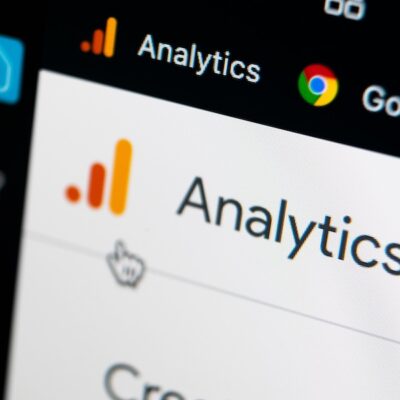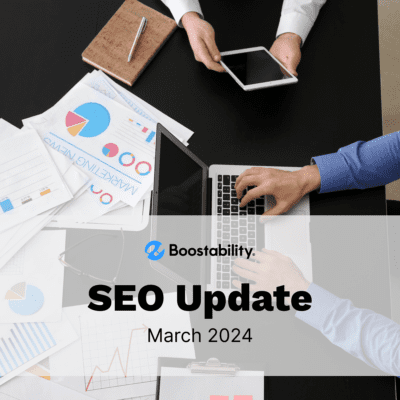It is important to optimize your website for SEO, but a well-defined online marketing strategy should consist of a number of marketing tactics. These work together to help you achieve your business goals. Therefore, as well as SEO, you should focus on:
- Website optimization
- Social media
- Content marketing
Not only will all three help you get more customers, they also work together to improve each other’s marketing channels in the process. For example, let’s say you create an in-depth blog post (content marketing). You upload the article to your website as well as sharing it on your Facebook and Twitter profiles (social media). Your fans on social media see your article and end up visiting your website. By optimizing your website usability (website optimization) with the right call-to-actions, a percentage of your fans will sign up to your email list, contact you, or make a transaction. This enables you to generate leads or make sales.
Here’s how you can leverage website optimization, social media, and content marketing to not only improve your presence online but your overall marketing strategy.
Website Optimization
Your website is the most important asset you have online. It’s the first place most visitors interact with your business — and first impressions are everything. If your website takes too long to load, has an unfriendly layout, uses colors that do not match your brand or the rest of your marketing materials, visitors may leave. The content on your website must provide value and have clear calls-to-action telling users to contact your business, receive a free quote, start a free trial, or buy your product.
With so much choice, visitors won’t stick around for a below-par experience. Websites that lack optimization often see high bounce rates and low average time spent on site. Also, Google has said that websites unoptimized for mobile are ranked lower in searches.
On the flip side, you can increase your conversions by as much as 100 percent just by optimizing your website. Furthermore, an optimized website will improve your SEO. Websites that load quickly (half of users will abandon a site after three seconds if a page fails to load) see return visits and have a lower bounce rate. Google takes this into account and ranks your the site higher in search.
Social Media Marketing
With the average user spending around 35 minutes per day on Facebook, social media is valuable real estate for every small and local business. Thanks to organic posts and paid advertising, it has never been easier to reach people in your area. You can then drive traffic from your social media accounts to your website.
In fact, you can do more much than just drive traffic. Social media also helps you to:
Generate brand awareness
Customers may come across your business during the awareness phase of the buyers’ journey. Having active social media accounts with strong followings will give users greater confidence in your business. As many as seven out of 10 consumers prefer to deal with a business that has a social media presence.
Targeted promotions
Whether you’re hosting an event or running a limited-time offer, you can let your fans know organically and with paid advertising. Through advanced targeting methods, you can set your ads to appear to users according to their location, age, gender, and interests. This ensures that only the people most likely to claim your offer or turn up to your event will see your content. Such targeting helps you to keep your marketing costs down.
Improve customer service
Consumers tend to shy away from emailing or calling a business because they don’t want to wait 48 hours for a reply or spend 15 minutes in a phone queue. Brands as big as Xbox use social media to engage with customers and resolve problems. Bear in mind, one in three social media users prefer to contact businesses over social media than phone or email.
Improve SEO
A healthy social media presence is a sign that your business is up-to-date in the modern world. The number of followers and shares you receive influence your website’s ranking in search.
Content Marketing
Content allows you to engage your target users. Furthermore, SEO, website optimization, and social media all require content to be effective. A website with no content is a blank canvas. A social media profile with no images, videos, text, and articles is useless.
In-depth, quality content allows your business to establish itself as an authority. This is powerful during the consideration phase of the buyers’ journey, when users are deciding whether you’re a suitable fit for their needs. Plus, quality content helps SEO — a high-quality article is more likely to be shared on social media and linked to by other websites.
Content can be anything from:
-
- Reports and blog articles
- Images (including as infographics)
- Videos
- Ebooks
- Online courses
- Podcasts and other audio
Compound Your Online Marketing Strategy
The businesses that are most successful online are the ones using a variety of online marketing strategies to build awareness, gather leads, and generate sales. Limiting your business to just one tactic reduces your reach and hinders your SEO.
Your business must have at least four marketing channels to win leads and customers: SEO, website optimization, social media, and content. Placing all of your eggs in one basket is always high risk, and it can cripple your business if that avenue stops producing results.
Are you confused about where to take your online marketing strategy next? For more advice, contact us today or check out our SEO Basic Training.









